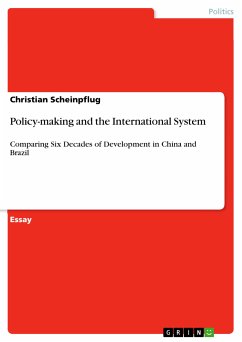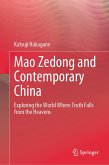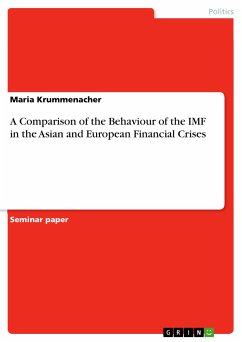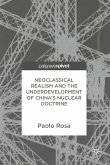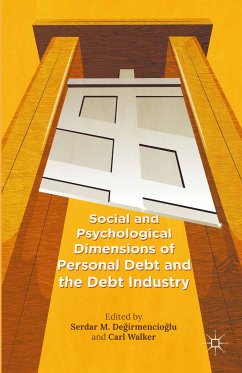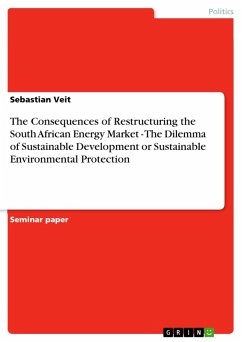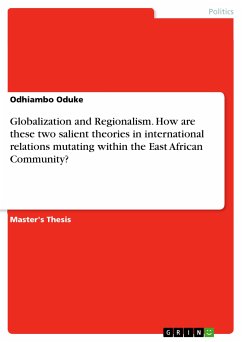Essay from the year 2012 in the subject Politics - International Politics - Topic: Development Politics, The Open University, language: English, abstract: China's and Brazil's economic development over the last 60 years has been remarkable and earned them the status of 'rising powers'. Especially China's transformation stands out as it increased its share of global GDP more than six fold from 1970 - 2009, to around 6%. Brazil's share actually decreased slightly but still remains stable since 1995 at around 2.5% (Farooki and Mohan, 2013, p. 106, fig. 5.1). Notably, both countries increased their service sectors' share of domestic GDP - China by 21%, Brazil by 23% - from 1980 to 2009, hinting at increasing sophistication (ibid, p. 108, table 5.1). This essay shows that these increases are results of structural changes in the global economic system and intentional action in both countries, which were initiated by international, national and non-governmental actors. Comparisons and contrasts are made to show how China and Brazil moved towards broader goals, such as governance, macroeconomics, and industrialization; as well as narrower ones, like decisions on aid and rural/urban development. Frameworks provided by development theories inform this attempt. The concluding section will summarize the main points and close with the argument that, although both countries' trajectories diverged nationally, major international crises linked their ascendance.
Dieser Download kann aus rechtlichen Gründen nur mit Rechnungsadresse in A, B, BG, CY, CZ, D, DK, EW, E, FIN, F, GR, HR, H, IRL, I, LT, L, LR, M, NL, PL, P, R, S, SLO, SK ausgeliefert werden.

